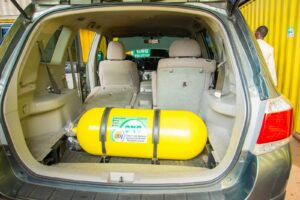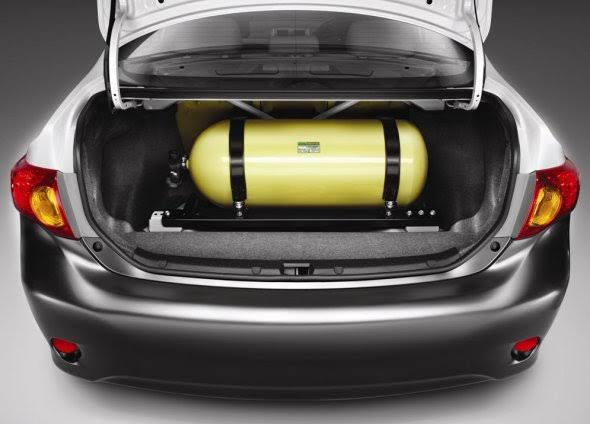Compressed Natural Gas (CNG) is the new buzzword in Nigeria since the current cycle of persistent petrol scarcity and the following price hikes. The National Gas Expansion Programme was launched by the past administration of Muhammed Buhari in year 2020, as part of effort to diversify Nigeria’s energy mix with a start-off target of one million cars at the end of 2021.
To drive the initiative in this current administration, the Presidential Compressed Natural Gas Initiative (PCNGi) was set up for this purpose. Since then, we have seen consistent effort towards CNG adoption across the country. Training of personnel, strategic partnerships on conversion centres/partners, distribution of conversion kits and media rounds to allay the concerns of the public coupled with responsive engagement of social media. While these efforts are commendable, there seems to be some gaps in these efforts to make CNG a major source of fuel for cars. If Nigeria intends to join the unique list of countries with a sizeable number of CNG fleet, then, there is a need to address some of these concerns.
A Low Trust Environment
Despite the economic appeal of converting to CNG, there is that lingering suspicion in the minds of the car owners on why the proponents of this initiative are not leading by example by converting and using this product themselves. They expect to see, in a bid to lead by example, fleet of cars owned by the coordinating ministry and agency powered by CNG. Some have gone to ask the country’s President to lead by example by converting the presidential fleet to CNG. This is possibly the major hurdle before its adoption. Nigeria has a long history of disconnect between the citizens and political leadership.
Explosion and Existential Risk
Social media is replete with pictures and videos of explosions associated with CNG. A winning line of argument has been fear of tampering with a car not purposely-built for CNG by its manufacturer. This concern is an existential one by intending converts. There have been cases of CNG-related car explosions in Armenia. In Iran, a top oil exporter and major user of CNGs, is not left out. As recently as September 2024, two persons lost their lives while refilling a CNG car in Pakistan’s Hyderabad.
There has to be clearly-defined and widely-publicized safety plans by the government and at the same time assure its citizens of strict adherence to quality control, maintenance standards and periodic standards review. These plans and standards will need to be codified to and recognized by law for effect.

Image Source: Twitter
Conversion Cost
Price remains a determinant to get on the CNG bandwagon. From what was gathered, the average cost for conversion goes from about eight hundred thousand to over a million Naira depending on the conversion location and partner. We understand that the government has responded to this by providing a payment plan to ease this off. For a technology seeking mass adoption, pricing hurdles should be removed entirely to encourage use, referrals and possible virality. Commendably, we understand the government has exempted CNGs and electric vehicles from VAT payments in its last official gazette. In the coming months, we expect to see incentives as these to nudge the willing but unable interests over.

Image Source: pci.gov.ng
DejaVu
The fear of getting caught in the loop of constant petrol price hike has held car owners back from getting aboard the CNG train. From our informal conversations with car owners, there is the lingering fear of another constant scarcity and hike in the price of gas in the near future as its demand picks up. The real cost breakdown of gas is yet to be made clear to intending CNG users. There is the need for transparency in the total cost breakdown and the extent of government’s exposure to subsidizing this product. For the cautiously undecided, this helps them avoid another subsidy entrapment currently experienced with petrol.
Supporting Infrastructure
In our article about preparedness towards an electric driven future, some of the highlighted points there can still come handy here. With scantiness in the spread and locations of refilling stations especially along the interstate corridors, CNG conversions lose appeal considering the number of stops required to complete and enjoy a journey. The onus is now squarely on the PCNGi to sign up refilling stations at well-spaced distances. Like electric car companies with a spread-out network of charging stations supported by charger interoperability and strategic partnerships, the PCNGi has its work cut out.

